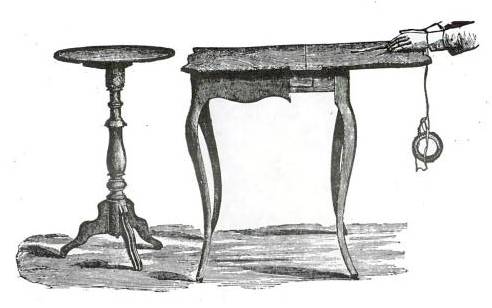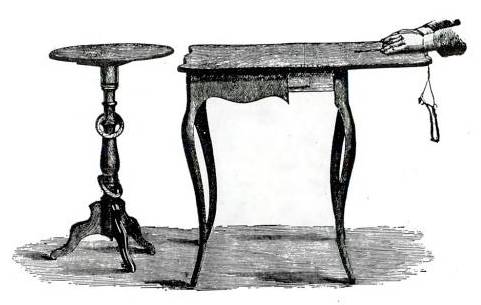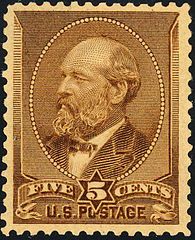Johann Zöllner may have been too trusting. In 1878, convinced that spiritualism was the manifestation of a fourth dimension, the German astronomer proposed an experiment to English medium Henry Slade. If rings composed of two different woods could be interlinked, he said, without evidence of damage to their fibers, this would constitute a “miracle,” that is, “a phenomenon which our conceptions heretofore of physical and organic processes would be absolutely incompetent to explain.”
On May 9, he and Slade met in a room. Zöllner strung two rings on a length of catgut, tied the ends together, secured the knot with a seal of wax, and sat with his hands upon it:

After a few minutes he smelled a burning odor that “seemed to come from under the table” and heard a rattling sound at the small round table “as of pieces of wood knocking together.” He opened his eyes to find this:

He pronounced himself “astonished and highly delighted” at this result, though “it will be seen that my prepared experiments did not succeed in the manner expected by me.” But he found his fellow scientists unpersuaded. A colleague from Russia complained that Slade had refused to reproduce his results for a skeptical audience because “his medium was not strong enough for it.”
And “It has further been asked, why the communications which are written for Mr. Slade on his slates, as is supposed by invisible spirits, are for the most part so commonplace, and so completely within the compass of human knowledge. High spirits must yet necessarily write with more genius, and also spell properly.”






